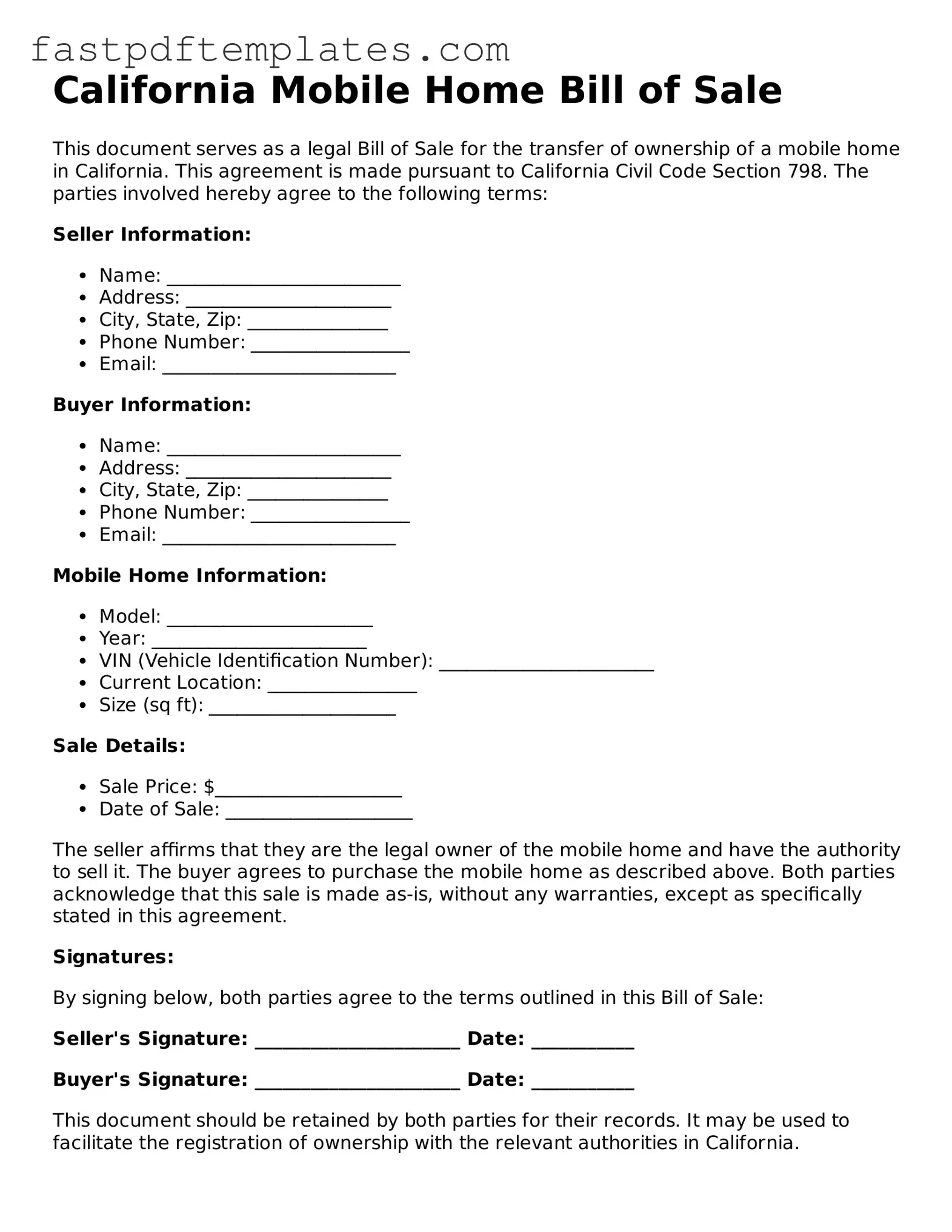Attorney-Approved California Mobile Home Bill of Sale Document
The California Mobile Home Bill of Sale form is a legal document used to transfer ownership of a mobile home from one party to another. This form outlines the details of the transaction, including the buyer and seller's information, the mobile home's description, and the sale price. Understanding this form is essential for ensuring a smooth and lawful transfer of property in California.
Access Document

Attorney-Approved California Mobile Home Bill of Sale Document
Access Document
Your form still needs completion
Complete your Mobile Home Bill of Sale online and download the final PDF.
Access Document
or
Click for PDF Form
